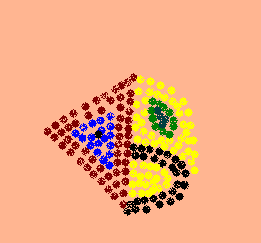
Over the holidays I got to read this excellent book by Steven Johnson titled Wonderland: How Play Made the Modern World. Steven is a prolific researcher, author, and story teller. In 2015, we watched his show How we got to now on PBS. Ever since I am a big fan of Steven. His research uncovers centuries of history and weaves them together in a fascinating way to tell the story from a dramatically new vantage point (afaik). And that is worth for me to invest several hours to read it and think about it. I highly recommend the show and book.
So what is so unique in this Wonderland book? Most of us know how wonderful a place Disneyland is for amusement or Starbucks can be for coffee meets. Little do we know that these ideas had some semblance in the centuries past. Most of us watch movies on big screens and are appreciative of the wonderful way the story, music, media, settings, etc., come together. Little do we know about the lessons adopted and developed over the centuries by the playwrights, illusionists, phantasmogoria, etc., that could have led to modern day movies and streaming videos. We love (or sometimes) hate spicy food. Discovery and global trade in spice led to rapid global integration in the past 6 centuries. And there were spice routes way before cell phones, airplanes, big ships, train lines, canals, and such.
It is astounding to understand the history of cotton cloth and how that inspired modern retailing and fashion. And potentially how this led to the looms which became automated with the industrial revolution. Subsequently this led to the early discoveries seeding the hardware, games, and then software that created the information revolution.
Steven provides a compelling view from a unique vantage point. The book reads like a mystery novel and keeps the excitement very well through the end. He makes a compelling point in the conclusion that play and the interest to step aside and look at situations anew is important for our growth as a civilization. Despite the genetic conditioning to stay the course, we owe it to ourselves to step outside and explore. Let the explorations continue to both geographically and conceptually grow our knowledge and contributions.

Leave a Reply